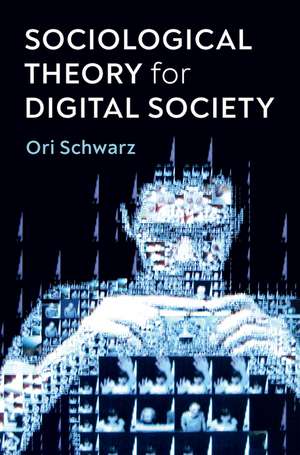Sociological Theory for Digital Society – The Codes that Bind Us Together
Autor O Schwarzen Limba Engleză Paperback – 2 sep 2021
| Toate formatele și edițiile | Preț | Express |
|---|---|---|
| Paperback (1) | 143.94 lei 3-5 săpt. | +14.95 lei 10-14 zile |
| Polity Press – 2 sep 2021 | 143.94 lei 3-5 săpt. | +14.95 lei 10-14 zile |
| Hardback (1) | 437.42 lei 6-8 săpt. | |
| Polity Press – 2 sep 2021 | 437.42 lei 6-8 săpt. |
Preț: 143.94 lei
Nou
Puncte Express: 216
Preț estimativ în valută:
27.54€ • 28.83$ • 22.79£
27.54€ • 28.83$ • 22.79£
Carte disponibilă
Livrare economică 15-29 martie
Livrare express 04-08 martie pentru 24.94 lei
Preluare comenzi: 021 569.72.76
Specificații
ISBN-13: 9781509542970
ISBN-10: 1509542973
Pagini: 218
Dimensiuni: 166 x 228 x 19 mm
Greutate: 0.36 kg
Editura: Polity Press
Locul publicării:Chichester, United Kingdom
ISBN-10: 1509542973
Pagini: 218
Dimensiuni: 166 x 228 x 19 mm
Greutate: 0.36 kg
Editura: Polity Press
Locul publicării:Chichester, United Kingdom
Cuprins
1. Introduction: Old disciplines, new times, revised theories
2. When Interactions Become Objects: Rethinking symbolic interactionism in the post-situational order
3. When Networks Materialize: Rethinking social ontology beyond the individual and the collective
4. When Social Capital can be Invested: Rethinking social capital
5. When Power is Exercised through Algorithms: Rethinking power under generative rulers
6. When Labour is Everywhere: Rethinking work in the era of workless labour
7. Conclusion: Sociological theory for the future
Acknowledgements
Notes
References
